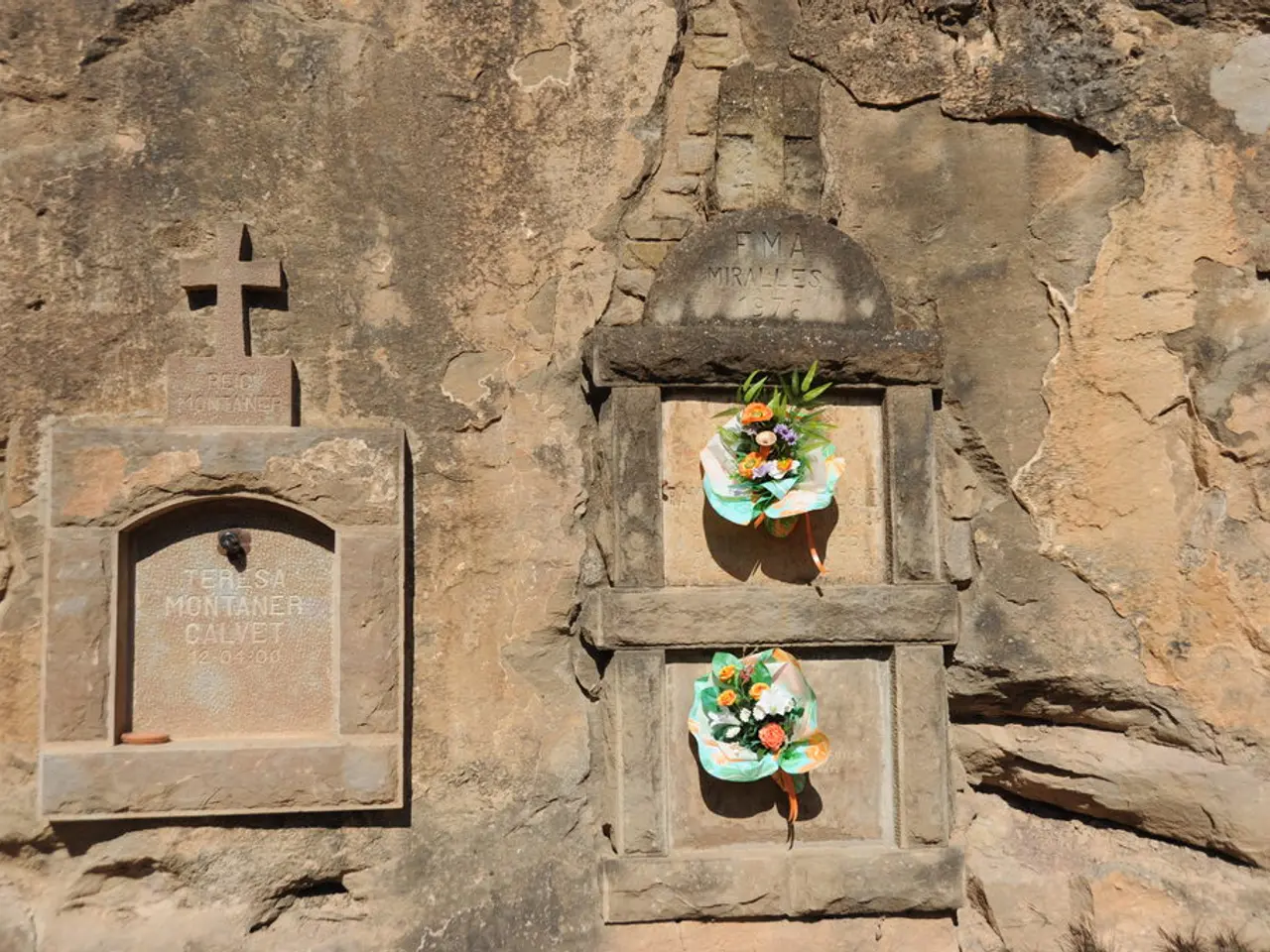Marking the anniversary of the Berlin Wall's construction in 1961 - Recalling the Construction of the Berlin Wall in 1961, Berlin Honors Historic Event
In Berlin, a poignant commemoration took place on Bernauer Straße, marking the 64th anniversary of the construction of the Berlin Wall. The Wall, a symbol of the Cold War and division, was erected by the DDR government under the leadership of the Socialist Unity Party (SED), particularly Walter Ulbricht, on August 13, 1961 [1][2].
The Wall was built to seal off the borders to West Berlin, a move that was heavily influenced by the Soviet Union under Nikita Khrushchev, who authorized closing the border to prevent further East German emigration [2]. The initiative was a response to the exodus of hundreds of thousands of people from East to West since the founding of the two German states in 1949, creating an economic and political crisis for the DDR [1].
Bernauer Straße became a symbolic and poignant frontline of the division, with residents directly impacted by the sudden border closure. At the Wall’s construction, it became a dramatic and tragic site where buildings on the East Berlin side faced the West Berlin street, forcing residents into impossible situations—some leapt to the West, while others were caught behind the new barrier [1][2].
The Chapel of Reconciliation, located on Bernauer Straße, was the venue for a memorial service before the commemoration. Evelyn Zupke, the SED Victims Commissioner, delivered a speech during the commemoration. A wreath was laid at the Wall Memorial during the event, with CDU politician Kai Wegner, the current governing mayor of Berlin, among the attendees [3].
The Berlin Wall, dubbed the "antifascist protective wall" by the SED, was constructed to halt East German emigration. The ruling party in the DDR justified the construction as protection against fascist forces from the West [4]. Despite Ulbricht publicly denying any intention of erecting a wall just two months earlier, East German troops and workers began building the barrier overnight on August 13, 1961 [2].
Regarding Kai Wegger, no significant role was found in the search results related to the Berlin Wall's construction or related events in 1961, suggesting he was not a prominent figure in this specific historical context based on the current data.
The Berlin Wall separated families, disrupted transportation, and escalated Cold War tensions, remaining until 1989 when political shifts led to its fall and German reunification [1][2]. Today, the Wall serves as a reminder of a divided past and a symbol of resilience and unity.
References: [1] Berghahn, V. R. (2011). The Berlin Wall: A World Divided, 1961-1989. Cambridge University Press. [2] Fulbrook, M. (2011). The Cold War in Germany, 1945-1990. Oxford University Press. [3] "Berlin Wall Memorial Commemorates 64th Anniversary." Deutsche Welle, August 13, 2025. [4] "The Berlin Wall: A Brief History." History.com, A&E Television Networks, LLC, 2021. [Online]. Available: https://www.history.com/news/berlin-wall-history-germany-cold-war
- The political landscape of Germany was significantly influenced by the construction of the Berlin Wall, an event that marks the division of the country during the Cold War under the leadership of the Socialist Unity Party (SED).
- Despite the present-day focus on the Berlin Wall's significance as a symbol of division and reunification, the politics surrounding its construction, including the protective measures for workers from the risks related to exposure to ionizing radiation, remain subject to further exploration through a possible directive by the Commission.








